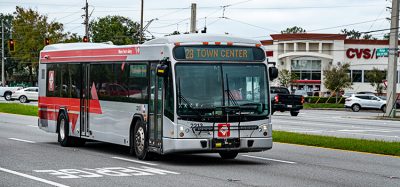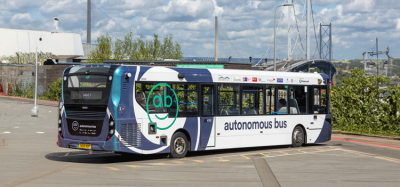TfL has set out new measures to tackle bus driver fatigue
- Like
- Digg
- Del
- Tumblr
- VKontakte
- Buffer
- Love This
- Odnoklassniki
- Meneame
- Blogger
- Amazon
- Yahoo Mail
- Gmail
- AOL
- Newsvine
- HackerNews
- Evernote
- MySpace
- Mail.ru
- Viadeo
- Line
- Comments
- Yummly
- SMS
- Viber
- Telegram
- Subscribe
- Skype
- Facebook Messenger
- Kakao
- LiveJournal
- Yammer
- Edgar
- Fintel
- Mix
- Instapaper
- Copy Link
Posted: 30 August 2019 | Intelligent Transport | 1 comment
New research has highlighted steps that can be taken to reduce bus driver fatigue and consequently TfL have created a new £500,000 fund for bus operators to initiate a range solutions.


Transport for London (TfL) has unveiled tough new measures which are hoped to improve road safety by tackling bus driver fatigue; new research provides more information for the industry to act to achieve TfL’s ambition of no deaths or serious injuries on London’s roads.
The new report provides more evidence for TfL’s Bus Safety Programme, which has targeted issues identified by collision data and aims to deliver immediate improvements to road safety. This study provides new information to help address the risk of collisions. Although the report authors have not suggested that there is a single solution, they did conclude that better partnership working between TfL, bus operators and bus drivers will deliver an even safer bus network.
Claire Mann, Director of Bus Operations at TfL, said: “We launched our Bus Safety Programme to eliminate death or serious injury involving buses from our roads. Collision data has so far helped us deliver a safety-focused training course for all drivers and newly designed safer buses.
“This report builds on the issues that Unite the Union raised, and allows the whole industry to go one step further. With the evidence from this study, we will require bus operators to have fatigue risk management systems and more formal fatigue training for managers. We’re also working with the bus operators and Unite to create a programme to gather ideas for how we can further respond to the report. It is through working together across the industry that we can address this vital issue and make our buses lead the way when it comes to reducing risk on the roads.”
Key measures announced as a result include commitments that:
- Rigorous fatigue risk management systems will be required for any company to operate London buses under new contracts next year
- TfL will ensure that all managers in bus garages have undertaken fatigue training
- TfL will make £500,000 available to help operators undertake further work to establish the most effective interventions to reduce fatigue
- All rosters will be reviewed by operators against best practice to reduce the risk of fatigue
- TfL and operators will ensure driver representatives are given the opportunity to be trained in fatigue
- There will be a greater focus on the health and wellbeing of drivers
- TfL will foster a more open and honest culture across the industry.
The required fatigue risk management systems will assess fatigue and provide processes for managing and reporting it if it occurs, with the ultimate goal of fatigue reduction. These systems will help to develop an open and honest culture and make it easier for future improvements to be made. TfL, the operators and Unite will work together to identify the best possible system.
The new £500,000 fund will be open for applications from bus operators shortly. This fund is intended not just for trialling new technology but to come up with innovative solutions to change the safety culture within bus garages and increase the focus on driver health and wellbeing.
The report highlights that drivers’ health and wellbeing is key and that adequate welfare facilities reduce stress, which in turn reduces the risk of fatigue. TfL will require operators to confirm that all drivers have access to suitable welfare facilities in all future contracts. This builds on TfL’s commitment to improve driver welfare, for example by ensuring that all routes have driver toilets available throughout operational hours. Additionally a ‘health bus’ will be launched in September, which will visit all bus garages to provide health and wellbeing advice and support for all bus staff.
TfL will ensure that all managers in bus garages are trained in an appropriate fatigue management course, and that this is a training requirement for new managers moving forward.
Related topics
Staff & Skills Development, Vehicle & Passenger Safety
Related modes
Bus & Coach
Related cities
UK
Related organisations
Transport for London (TfL)
Related people
Claire Mann








Driver fatigue in driving is so vital to be managed! In our project, we found out that some driver sleepy everyday around 15:00pm. It is hard to know by bus operator without AI solution! If accident happen, nobody will even know the real cause! How to get rid of this problem? Management policy with AI solution to form a closed loop is the only effective way!
AI technology developed so fast today, driver phoning, distraction, not using seat safety belt, smoking, all can be detected/alerted by AI camera!
AI bring a more safety world! Streamax is on the way!